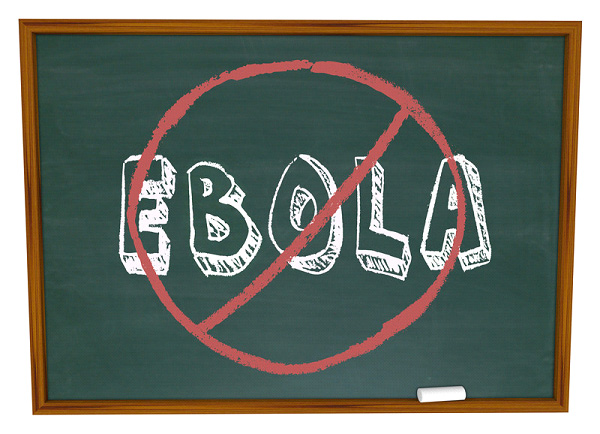Make no mistake, the seriousness of Ebola is not to be underestimated. It is no surprise that people in the western world are feeling apprehensive, despite the known instances outside of Africa only amounting to a handful. It is important not to panic; however, it is equally pertinent to be aware of the dangers, and how to protect yourself from them.
What is Ebola?
Ebola is a highly infectious, acute viral disease that is transmitted through the bodily fluids of an infected animal or human. Fruit bats are considered to be the virus’ natural host, but in Africa, Ebola has been detected in many animals, including monkeys and antelopes. At present, over 3000 people, predominantly in West Africa, have died of the disease.
Symptoms of Ebola
Symptoms of Ebola are non-specific and mimic other serious illnesses such as malaria and cholera, but generally include a high fever, nausea and vomiting, chest and stomach pain, diarrhea and bloody stools, red eyes and bleeding from orifices such as eyes. Symptoms can appear 48 hours after infection, but it can take anywhere up to three weeks. Currently, there are no vaccinations to prevent Ebola, and no known cure, and statistics show that around 90% of people who become infected will subsequently die from the disease.
Reported cases outside of West Africa
At present, the majority of cases are within West Africa (predominantly Guinea, Sierra Leone and Nigeria), and instances outside of this region are very rare. There have been several across Europe, including Spain, which has the first known case of Ebola being contracted outside of West Africa. So far, there has only been one incident of Ebola reported across the US and Canada, with a man in Texas currently being treated in isolation.
Steps taken to prevent the disease from spreading
People infected with Ebola are being kept in isolation, with aid workers advised to look out for early symptoms such as a high temperature. The World Health Organization (WHO) is recommending that all people leaving the countries affected by Ebola should be screened for any symptoms; in addition, they advise that anyone likely to have come into contact with the disease should not travel. President Obama has stated that the US will also implement screening for passengers entering the country to detect Ebola symptoms. Some African airlines have suspended operations to the countries worst affected, and Liberia’s president has instructed the closure of all borders.
What can be done to protect yourself against Ebola?
As it stands, you only need to be concerned about Ebola if you are in area where people have contracted the disease. Should the situation arise where more instances are being reported in the US and Canada, it is important to stay away from areas that have cases of infection, and to familiarize yourself with the symptoms. As mentioned, the disease is transmitted through bodily fluids, either directly from the infected person, or from clothing worn by them. At the moment, the disease is prolific in areas with poor sanitation.
Is there a real threat to Canadian and US Citizens?
The leaders of the western world are advising that there is no reason for panic at this moment in time, and that everything is being done to prevent the transmission of Ebola to Canada and the US. However, some experts feel that there is a genuine cause for concern, and that the disease may spread quicker than everyone is anticipating.

No Comments